Dutch investigators to charge four suspects with murder over downing of MH17
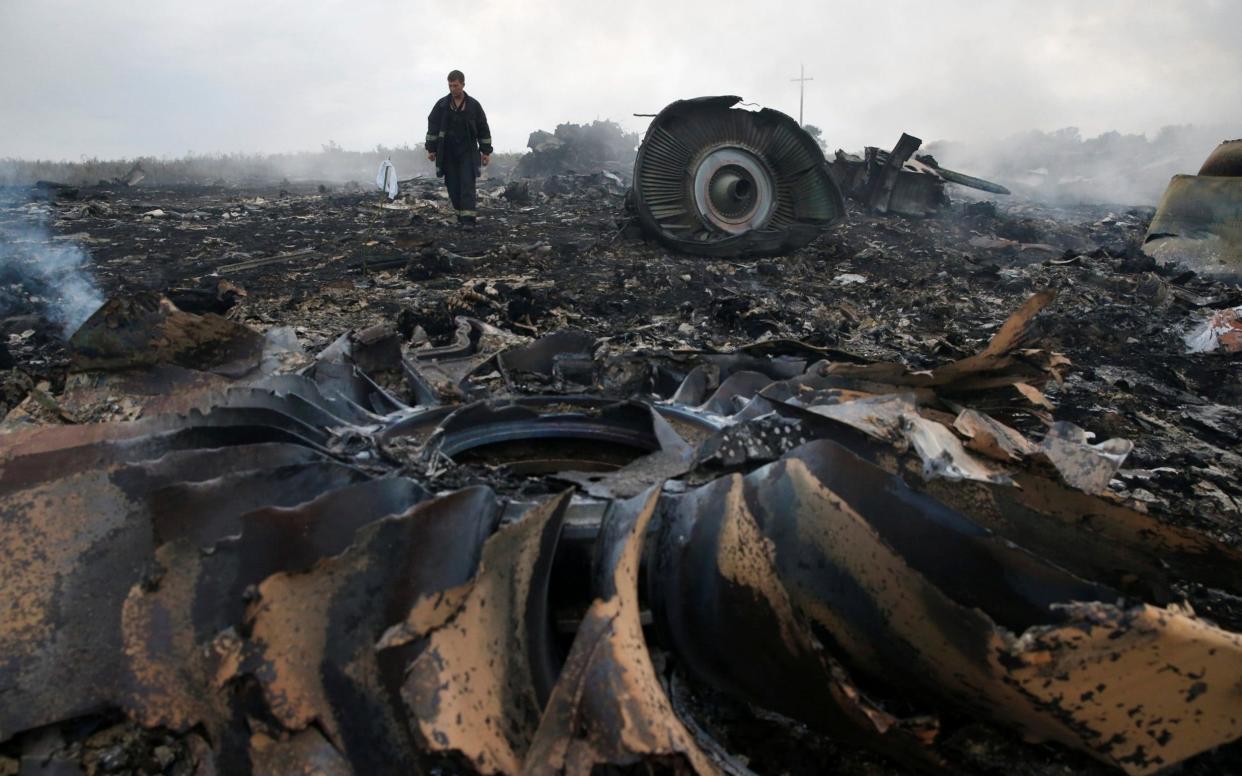
Four men with links to the Russian military have been charged with murdering nearly 300 people on board an airliner shot down over Ukraine.
Dutch investigators issued international arrest warrants for Russians Igor "Strelkov" Girkin, Oleg Pulatov, and Sergic Dubinsky, and Ukrainian Leonid Kharchenko.
The men are accused of procuring and organising the deployment of the Russian missile launcher that shot down flight MH17 in 2014.
Announcing the charges on Wednesday, Fred Westerbeke, the Netherlands’ chief prosecutor, condemned the Kremlin for trying to obstruct the investigation.
"We have the proof that the Russian Federation was involved in this tragedy one way or another," he said.
"Russia has not provided any information...and that is a slap in the face of all of the relatives of the bereaved," he said.
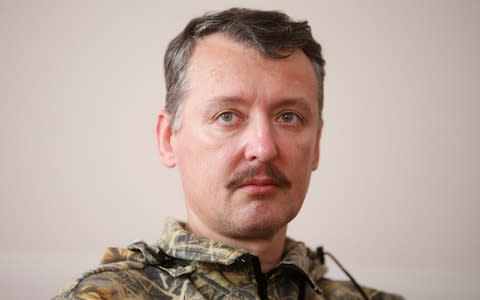
All 298 people on board flight MH17 from Amsterdam to Kuala Lumpur were killed when it was blown out of the sky by a Russian-made Buk missile on July 17, 2014.
About two thirds of the victims were Dutch. Ten Britons were also killed.
It was the bloodiest single day in the war between Ukrainian troops and Russia-backed separatist forces which has killed more than 10,000 people over the past five years.
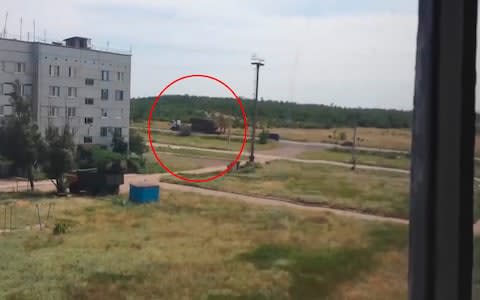
Russia has always denied involvement. But Australia and the Netherlands said last year that they hold Russia legally responsible for the shootdown and have said they will seek reparations.
The Dutch-led joint investigation team, which also includes Australian, Malaysian, Belgian and Ukrainian investigators, said the men named on Wednesday were instrumental in bringing the Buk 9M38 missile involved into Ukraine from Russia.
All were senior members of the self-proclaimed Donetsk People's Republic (DNR), a separatist movement largely funded and directed from Moscow.
Mr Girkin, a former officer in Russia’s Federal Security Service, was the DNR’s “minister of defence” and top military commander at the time.
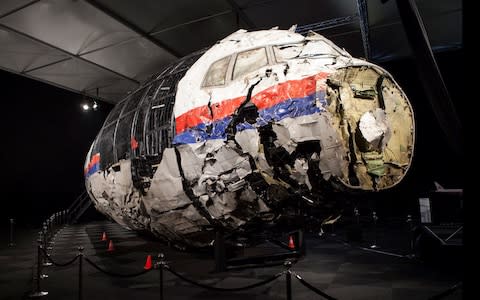
Mr Dubinsky, Mr Pulatov, and Mr Kharchenko ran the DNR's military intelligence service, which is believed to have controlled and escorted the Russian BUK missile launcher on the day of the downing.
Investigators say Mr Pulatov and Mr Dubinsky are serving or former members of Russia's GRU military intelligence agency.
Mr Westerbeke said he was “realistic” about the prospects of bringing the suspects, who currently reside in Russia and separatist-held parts of Ukraine, to trial.
But he added that investigations into the chain of command would continue, and that detectives are anxious to speak to soldiers from the 3rd battalion of Russia’s 53rd air defence brigade, which they believe provided the weapon and the crew.
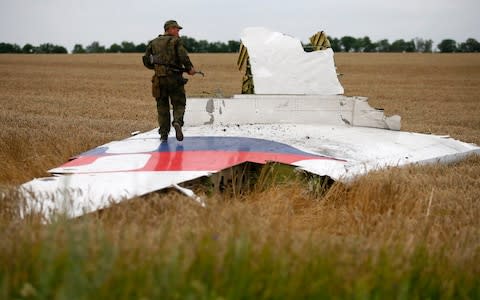
He declined to say how far up the Russian chain of command the investigation could lead. But part of the evidence presented on Wednesday was an intercepted telephone conversation in which Alexander Borodai, DNR’s “prime minister,” asks Vladislav Surkov, an influential advisor to Vladimir Putin, for military reinforcements.
Silene Fredriksz, whose son and daughter-in-law were killed in the disaster, said she was “satisfied” with the announcement.
"There is a court case on March 9 2020 against four people for murder," she told reporters after family members were briefed on the charges.
"I am happy that the trial is finally going to start and that the names have been announced. It's a start.”
The Kremlin said it had no reason to trust the investigation and that its position on the incident has not changed.
"Russia was unable to take part in the investigation despite expressing an interest right from the start and trying to join it,” said Dmitry Peskov, a spokesman for Vladimir Putin.
The Russian foreign ministry called the findings "absolutely unfounded accusations aimed at discrediting the Russian Federation in the eyes of the international community."
Mr Girkin, who has fallen out of favour with the Kremlin since 2014, said in a statement: "I can only say that militia did not shoot down the Boeing."
The man who answered a phone number previously listed for Sergei Dubinsky said he did not know him.
Emails to addresses linked to Mr Dubinsky and Mr Pulatov did not immediately receive a response.
Jeremy Hunt, the Foreign Secretary, said: “The Russian Federation must now cooperate fully with the prosecution and provide any assistance it requests in accordance with UN Security Council resolution 2166.
“The charges brought against these individuals today show that the international community stands together against the impunity of those responsible for the despicable murder of 298 innocent people.”

